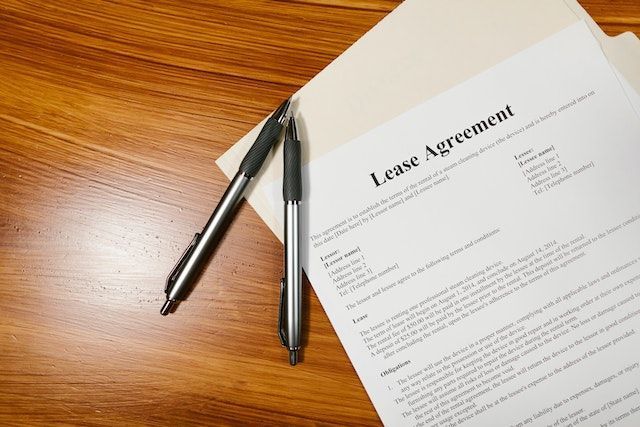Why Pet Screening Is Always a Good Idea

According to recent statistics, pet ownership is at its highest peak in history. This is relevant to landlords because tenants with pets probably won’t consider moving into a property that isn’t pet-friendly.
Allowing pets in your property would attract significantly more attention, as the pool of potential applicants expands, which could result in greater revenue.
With a solid screening procedure in place, you will be well equipped to welcome pets into your property and experience all of the benefits this can offer you.
Keep reading to learn what pet screening is, how to conduct it, and why it’s so important.
Advantages of Having a Pet-Friendly Property
A Niche Market
Most landlords do not allow animals in their rental properties. Going against the grain and renting to tenants with pets will make your home stand out and give you a competitive edge against other properties.
Before allowing pets into your property, familiarize yourself with Illinois' landlord-tenant laws to ensure you remain compliant with the relevant regulations.
Long-Term Tenants
Taking care of a pet requires a lot of patience and responsibility. If an applicant takes good care of their pet, they are likely to be a responsible tenant who pays their rent on time and adheres to the terms of the lease.
Additionally, because finding pet-friendly properties can be difficult,
tenants with pets may be less likely to move out. If a pet is comfortable in the current environment, the renter will be inclined to renew their lease.

Higher Rent
Although renting to pet owners might increase the risk of property damage, it shouldn’t be a deterring factor. To cover potential repair costs, most landlords increase their rent or charge a pet deposit fee. This could also improve your property’s
market value, as you’d profit from a higher income than neighboring, non-pet-friendly homes.
Using Questionnaires to Your Advantage
The best way to start a pet screening is to request detailed information and have the potential renter fill out a questionnaire. Here are some of the questions you could ask:
- What is your pet’s breed?
- How old is your pet?
- Do you have proof that your pet is vaccinated?
- Who is your local veterinarian? Can you provide their contact and address?
- Does your pet have a history of violence?
- Does your pet have any behavioral issues? This might be in the form of growling, bared teeth, or excessive barking.

For dogs, there are specific questions that you should include:
- Has your dog been professionally trained?
- Can your dog spend time alone?
- Is your pet neutered? Is it something you’re considering?
- Do you leash your dog when you’re going out for walks?
If the potential tenant has a cat, it is recommended that you include the following questions:
- Is your pet neutered? Is it something you’re considering?
- Does your cat use a litter box?
- Is your pet registered? Do you have proof of identification?
In-Person Meetings
The information provided on the application form will give you a good feel of the character and health of the animal. However, it should not substitute a physical meeting; arrange an in-person meeting to properly assess the pet's behavior.
While you might want to assess the pet’s reactions during the in-person meeting, it is important to remember that animals might get defensive when startled or in a new environment. If you’re not comfortable around pets or think you might need additional help,
consider hiring a third-party person to conduct the interview, such as a property manager.
Pet Clauses to Include in the Lease Agreement
A lease agreement dictates the rights, responsibilities and obligations of both the landlord and the tenant. Once signed by both parties, it becomes legally-binding, and it can be a very useful and powerful document. It is thus important to include pet-specific clauses in
the lease agreement.

Here are some of the pet clauses that should be included in the lease:
- Mandatory pet screening for all pets. Only screened pets will be allowed on the premises.
- Types of pets that’ll be allowed inside the property. You can be selective about the types of pets allowed, as well as the number of pets, or their weight and size, as long as its applied equally to all tenants.
- Pet rent or pet deposit. According to Illinois law, you are allowed to charge tenants a defined pet rent or deposit, except for service dogs and emotional support animals.
Service Animals
The
Americans with Disabilities Act (ADA) defines a service animal as a dog that has been individually trained to do work or perform tasks for an individual with a disability. Service animals are thus differentiated from regular pets.
Legislation regarding the rights of service animals and their owners may vary. Make sure to familiarize yourself with Illinois’ landlord-tenant laws and the federal
Fair Housing Act to remain compliant throughout the leasing process.
Conclusion
Becoming a pet-friendly property doesn’t have to be risky or stressful. Through careful pet screening and detailed clauses, you can minimize property damage, gain a competitive edge, and potentially elevate your property's rental value.
MTD Property Management is a reputable and experienced property management company. We’re known for our excellent personalized services, and you can rely on us to conduct efficient pet screening for you. Get in touch with us today!









